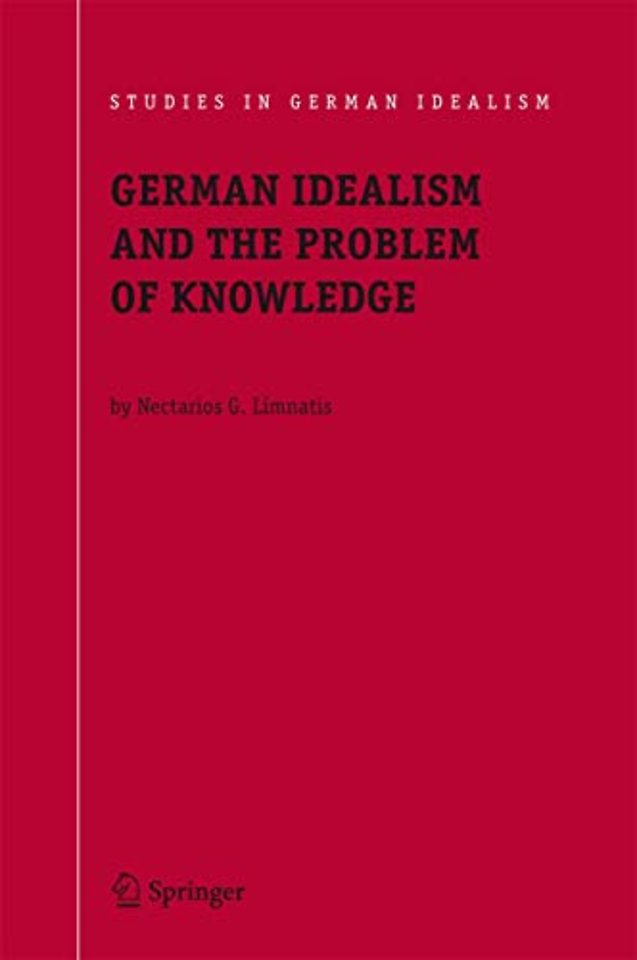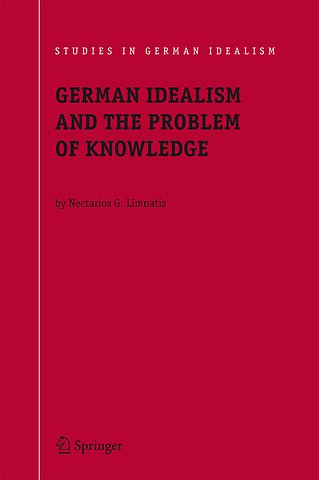German Idealism and the Problem of Knowledge:
Kant, Fichte, Schelling, and Hegel
Samenvatting
The movement of German idealism culminates in the revelation of the re? ective boundaries of theoretical knowledge. The history of the most important intellectual developments thereafter could be described, following a recent remark of Jürgen Habermas, as a his- 1 tory of the de-transcendentalization of the cognizing subject. In this context, the epistemological interpretation proposed in this book must be speci? cally understood. Examining the problem of knowledge in the development of German idealism, it aims not at an epistem- ogy of the Cartesian type, and even less at a formal logical analysis of knowledge which lacks the re? ective element of the devices it employs as “the search for the immutable structures within which knowledge, 2 life, and culture must be contained. ” These “structures” do not only condition the process of knowledge, they are themselves conditioned. There is thus an unsurpassable circle in this process, a circle which German idealism brings to the surface and profoundly scrutinizes. Therefore, the task is to re? ectively account for the historical horizons in which cognition arises (being ultimately thereupon dependent), instead of searching for an ultimate Archimedean point for its deduction. Rather than searching for inexplicably transc- dental concepts, this argument points to their determination from within a given Lebenswelt. It does not renounce but rather rede? nes 3 objectivity, by seeing the subject as a coming-to-know-itself totality. 1 J. Habermas, Wahrheit und Rechtfertigung. Philosophische Aufsätze (Frankfurt a. M. : Suhrkamp, 1999), p. 186.
Specificaties
Inhoudsopgave
<P><STRONG>1. Epistemology or Metaphysics? The Kantian Background.<BR></STRONG>1.1 Scientific Metaphysics? 1.2. Transcendentalism versus Realism? 1.3. The Ontological Facet: the Transcendental Self and the Thing-in-itself 1.4. From the Ontological to the Logical. Understanding, Reason and Totality 1.5. The Logical Facet: Kant’s Relation to Formal Logic and the Problem of Contradiction</P>
<P><STRONG>2. From Epistemology to Metaphysics: Fichte and Schelling<BR></STRONG>2.1. Fichte: The Thing-in-itself and the Dialectical Leap 2.2. Schelling: Epistemology and the Resurrection of Metaphysics</P>
<P><STRONG>3. From Metaphysics to Epistemology I: From the Phenomenology to the Logic or Hegel’s Claim for Absolute Knowing and its Meaning<BR></STRONG>3.1. Idealism, Reason and Contradiction in the Early Hegel 3.2. Hegel’ Phenomenology. The Coming to be of the Self and the Question of Intersubjectivity 3.3. The Transition to Self-Consciousness and Idealism</P>
<P><STRONG>4. From Metaphysics to Epistemology II: Logic and Reality<BR></STRONG>4.1. The Idea of an Epistemological Reading of the Science of Logic 4.2. Toward an Epistemological Totality.</P>
<P>CONCLUSION. BIBLIOGRAPHY</P>

